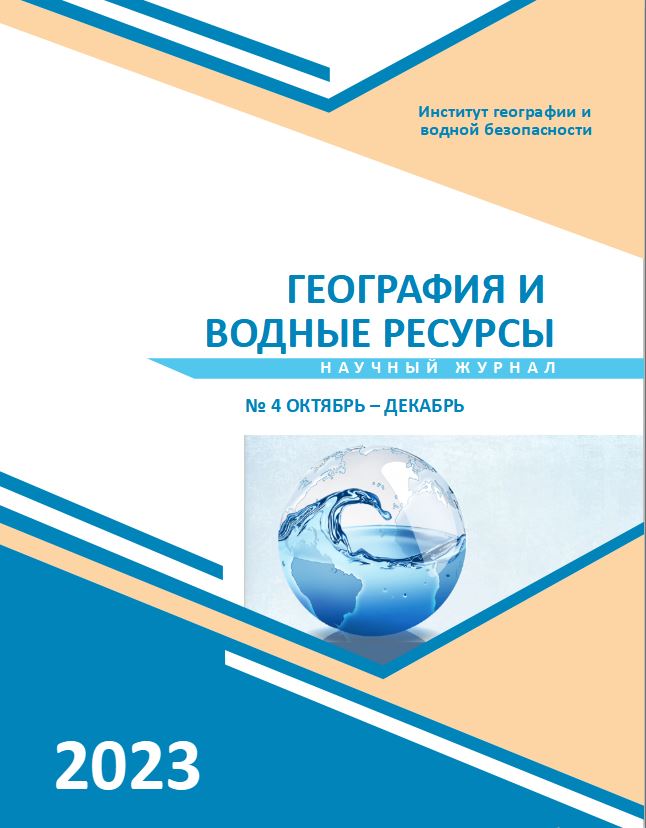ҚАЗАҚСТАНДА ПАРНЫ ГАЗДАР ШЫҒАРУЫН АЗАЙТУ ШАРАСЫ РЕТІНДЕ КӨМІРТЕК САЛЫҚЫН ЕНГІЗУ: НЕГІЗГІ ҚИЫНДЫҚТАР МЕН МӘСЕЛЕЛЕР
Main Article Content
Аңдатпа
Аннотация. Қазақстан үшін жинақталған тәжірибені пайдалану мақсатында әлемнің дамыған елдері үшін парниктік газдар шығарындыларына салық салу мәселесіне шолу ұсынылған. Шолу шетелдік мақалалар мен халықаралық құжаттардың материалдары негізінде дайындалды. Көміртектерге салық салу сияқты құралды енгізу кезінде көптеген проблемалар туындайды - жекелеген компаниялардың немесе салалардың мүдделерін лоббирлеуден бастап қоғамдағы әлеуметтік шиеленіске дейін, бұл айтарлықтай тәуекелдерге әкеледі. Мұндай құралдың тиімділігіне қарамастан, мақсаттарды нақты бөліп, түсіндіру науқанын жүргізіп, жылдам нәтиже күтпеу керек. Климаттың өзгеруін тежеу бойынша жобаларды жүзеге асыру үшін жиналған қаражатты бөлу бөлек мәселе.
Article Details
##submission.citations##
Algan, Y., Cahuc, P. La Société de Défiance: Comment le Modèle Social Français s’Autodétruit; CEPREMAP: Paris, France, 2007; Available online: https://www.cepremap.fr/publications/la-societe-de-defiance-comment-le-modele-social-francais-sautodetruit/ (accessed on 23 July 2019).
Andersson J.J. Carbon Taxes and CO2 Emissions: Sweden as a Case Study. Am. Econ. J. Econ. Policy 2019, 11, 1–30. [Google Scholar] [CrossRef]
Boiteux, M. Transports: Choix des Investissements et Coût des Nuisanes. Commissariat General du Plan. 2001. Available online: https://www.ladocumentationfrancaise.fr/rapports-publics/014000434/index.shtml (accessed on 23 July 2019).
Douenne, T., Fabre, A. Can We Reconcile French People with the Cqrbon Tax? Disentangling Beliefs from Preferences. Working Paper WP 2019.10. French Association of Environmental and Resource Economists. Available online: https://ideas.repec.org/p/fae/wpaper/2019.10.html (accessed on 24 July 2019).
Environment and Climate Change Canada. National Inventory Report: Greenhouse Gas Sources and Sinks in Canada. 2018. Available online:
http://www.publications.gc.ca/site/eng/9.506002/publication.html (accessed on 24 July 2019).
Government of Canada. Federal Actions for a Clean Growth Economy; Government of Canada: Ottawa, ON, Canada, 2018. Available online:
https://www.canada.ca/en/services/environment/weather/climatechange/climate-action/federal-actions-clean-growth-economy.html (accessed on 23 July 2019).
Kossoy Alexandre, Grzegorz Peszko, Klaus Oppermann,Nicolai Prytz, Alyssa Gilbert, Noemie Klein ,LongLam, Lindee Wongetal. 2015. “Carbon Pricing Watch 2015.” Tech.rep.,TheWorldBank.
Lin, B., Li, X. The effect of carbon tax on per capita CO2 emissions. Energy Policy 2011, 39, 5137–5146. [Google Scholar] [CrossRef]
Martin, R., de Preux, B., Wagner, U.J. The Impacts of the Climate Change Levy on Manufacturing: Evidence from Microdata. Working Paper 17446, NBER Working Paper Series. 2011. Available online: https://www.nber.org/papers/w17446.pdf (accessed on 23 July 2019) [Green Version].
Murray, Brianand Nicholas Rivers. 2015. “British Columbias revenue-neutral carbon tax: A review of the latest grand experiment inenvironmental policy.”Energy Policy 86:674–683.
Quinet, A. La Valeur Tutélaire du Carbone; La Documentation Française: Paris, France, 2009; Available online: https://www.ladocumentationfrancaise.fr/rapports-publics/094000195/ (accessed on 23 July 2019).
Réseau Action Climat. Nos Propositions Pour une Nouvelle Fiscalité Carbone et Energétique Plus juste. 2019. Available online: https://reseauactionclimat.org/contribution-climat-solidaire/ (accessed on 24 July 2019).
Sterner, Thomas. 2015. “Beyond IPCC, Research for Paris 2015 and Beyond.”Environmental and Resource Economics 62 (2) :207–215.
World Bank. CO2 Emissions (kg per 2010 US$ of GDP). Available online: https://data.worldbank.org/indicator/EN.ATM.CO2E.KD.GD?end=2014&locations=US-1W-OE-GB-DK-NO-SE&start=1960&view=chartCzxc (accessed on 23 July 2019).

